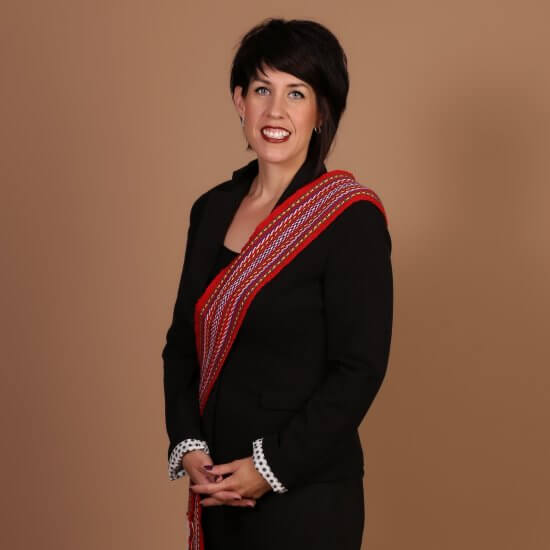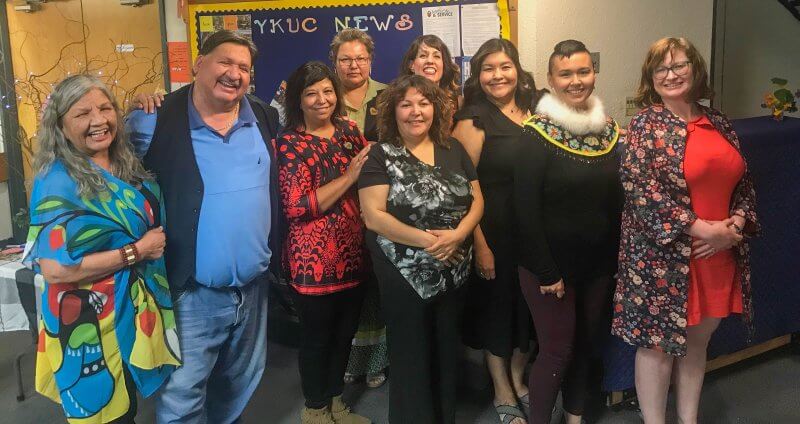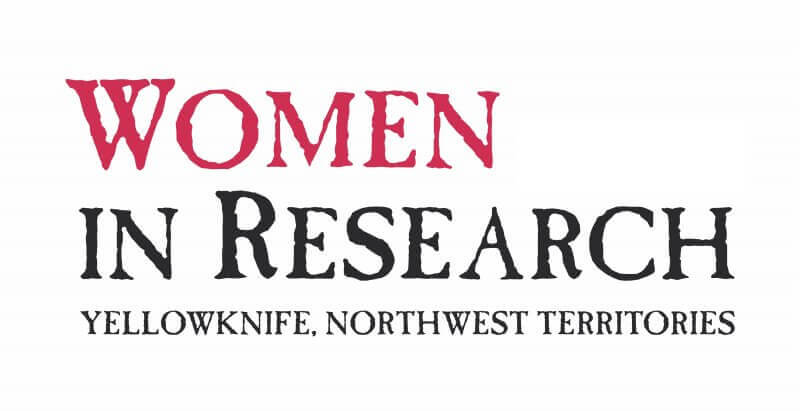AU undergrad helps take research to the North
An Athabasca University (AU) undergraduate’s research project is already beginning to help transform healthcare providers’ awareness of Indigenous women’s health issues.

Shelley Wiart, currently in her fourth year of a Bachelor of Arts program in the Faculty of Humanities & Social Sciences, got grant funding this year to help her co-create five digital stories and present them in a public forum in Yellowknife in August—but she mostly credits the research participants for the results.
“I was just the person who helped them. It’s all them; it’s not me,” she said. “They picked the photos, they picked out the music, and they wrote out their script and I edited it. It was truly a collaborative process.”
Dr. Janelle Baker, an AU researcher who supervised the project, said she was impressed with the high-quality research and with how Wiart, a member of the North Slave Métis Alliance in Yellowknife, facilitated the work.
“She uses Indigenous research methodologies, which makes for very successful and impressive research,” Baker said. “She really understands how to work in collaboration with community members to co-produce knowledge.”
Research project

Wiart’s project comprises the research and creation of five digital stories featuring Indigenous women—two from the Onion Lake area near Lloydminster, AB, where she currently lives, and three from Yellowknife, NWT, where her family is from.
The women speak about their own experiences with healthcare, and in many cases, with their families’ healthcare, which have been significantly influenced by the effects of intergenerational trauma and the legacy of Canada’s residential school system, and also by cultural insensitivities among healthcare providers in the present day.
“We did their stories all separately, but if you start to look at it, there are a lot of themes that connect each of the stories,” Wiart said.
The ultimate goal of this project is to share these stories to increase healthcare providers’ understanding of these issues, which has begun to happen. Wiart hosted a public discussion about the stories on Aug. 15 in Yellowknife. More recently she has shared these digital stories with medical residents at the University of Calgary, spoke about the stories on the Aboriginal Peoples Television Network, and the government of the Northwest Territories has asked her to share these stories as part of its cultural competency training.
But still, that work of spreading the message is in the early stages.
“I’m happy with the way we’re disseminating the results, reaching out to researchers and getting it on APTN,” she said. “But I feel like we could do a better job just talking to Indigenous communities, sharing it with them, and giving them some help with advocacy and using their own stories to transform the healthcare system.”
“In Yellowknife they don’t have a university, so it was really important that they could see me doing my post-secondary education in multiple locations, and being supported like this. I think it was also impactful for my digital storytelling participants.”
– Shelley Wiart, Athabasca University undergraduate
The five stories can be seen on the website of Women Warriors, an organization Wiart cofounded to empower women to be more physically active and eat well, and to create an environment of support so participants can learn to manage those barriers.
Further to completing a successful research project, Wiart said simply being up in Yellowknife doing the research, along with Baker, had an impact on many of the participants as well as others in the community.
“In Yellowknife they don’t have a university, so it was really important that they could see me doing my post-secondary education in multiple locations, and being supported like this,” she said. “I think it was also impactful for my digital storytelling participants.”
Wiart said she doesn’t think she would have been able to do this type of research from a traditional place-based university, whereas AU’s flexibility made it possible for her.
Women in Research conference

Wiart’s work bringing research to the North will continue in 2021, with the support of Baker and of several granting organizations including the Social Sciences and Humanities Research Council.
The two will work to host a Women in Research conference in Yellowknife, with the goal of bringing in additional perspectives from a variety of women researchers as well as Indigenous elders representing several Indigenous cultures.
The two-day workshop for students—including many Indigenous students—will focus on health, environment, and participatory action research methods. Topics will include the importance of post-secondary education, increasing space for Indigenous women in research, and creating a support network to mentor and propel more women to get into research in the Northwest Territories.
“It thrills me to support and inspire young people in the North to become involved in reciprocal community-based research,” Baker said.
For her part, Wiart credits Baker’s support with being able to accomplish as much as she has.
“I feel extremely well supported,” she said. “I like that AU gave me the flexibility to connect with and work with a researcher I felt really comfortable with.”
Shelley is a recipient of the Researcher Capacity Development Award funded by Hotıì ts’eeda, the NWT Strategic Patient Oriented Research (SPOR) SUPPORT Unit, funded by the Canadian Institutes of Health Research and governed by NWT Indigenous and public governments. It is hosted by the Tłıc̨hǫ Government and means “working together for good health” in the Tłıc̨hǫ language. Hotıì ts’eeda supports and facilitates NWT health research with a focus on Indigenous methodologies, community engagement and mobilizing best practices.